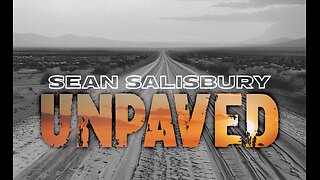Premium Only Content

Censorship Dictatorship by 2024 , Europe is First , Digital Prison, Digital Id , To Ramp Up!, 1984,
To watch full Video go here ! - https://rumble.com/v41ir1q-mike-in-the-night-e538-next-weeks-news-today-headlines-call-ins.html
"1984" is a dystopian novel written by George Orwell and published in 1949. The story is set in Airstrip One (formerly known as Great Britain), a province of the superstate Oceania, in a world that is perpetually at war. The novel follows the life of Winston Smith, a low-ranking member of the ruling Party, as he becomes disillusioned with the oppressive regime led by the mysterious figure known as Big Brother.
Key elements of "1984" include:
Totalitarianism: The novel explores the consequences of a totalitarian regime that exercises absolute control over every aspect of its citizens' lives. The Party, led by Big Brother, manipulates history, controls language through Newspeak, and monitors citizens through pervasive surveillance.
Surveillance: The concept of constant surveillance through telescreens and the Thought Police is a central theme. Citizens are always under the watchful eyes of the government, fostering a climate of fear and self-censorship.
Manipulation of Truth: The government in "1984" rewrites history to suit its narrative, erasing and altering facts to maintain control over the population's perceptions of reality.
Newspeak: The Party employs a controlled language called Newspeak, designed to limit freedom of thought by eliminating words that could be used to express subversive ideas or criticism of the government.
Doublethink: Citizens are expected to accept contradictory beliefs simultaneously, a concept referred to as doublethink. This is a mechanism for maintaining unquestioning loyalty to the Party.
When drawing parallels to today's society, some observers point to:
Surveillance and Privacy Concerns: In the age of technology, concerns about mass surveillance, data collection, and the erosion of privacy have become increasingly relevant. Governments and corporations have access to vast amounts of personal information.
Fake News and Manipulation of Information: The spread of misinformation, the manipulation of facts, and the rise of "fake news" have been noted as contemporary issues. The novel's exploration of the control of information and the shaping of public perception is particularly relevant.
Political Authoritarianism: Some critics draw parallels between the authoritarian tendencies depicted in "1984" and certain political movements or leaders that emphasize control, nationalism, and a disregard for democratic norms.
Censorship and Self-Censorship: Instances of censorship and self-censorship, where individuals refrain from expressing certain opinions due to fear of backlash, are concerns in societies where dissenting views may be met with harsh consequences.
It's important to note that while there may be similarities, direct comparisons between "1984" and contemporary society should be made with caution. Orwell's novel serves as a cautionary tale about the dangers of unchecked power, surveillance, and the manipulation of information, urging readers to be vigilant and protective of democratic principles.
dystopian, literature, George Orwell, 1984, totalitarianism, surveillance, manipulation, truth, Newspeak, doublethink, privacy, technology, surveillance state, fake news, information control, political authoritarianism, censorship, self-censorship, democracy, warning, cautionary tale, societal parallels, fiction, thought police, Big Brother, propaganda, government control, dissent, social commentary, mass media, propaganda, literary analysis, contemporary issues
-
 7:39
7:39
Mike Martins Channel
1 month ago $0.01 earnedSM Mall of Asia: A Symbol of Filipino Progress and Global Ambition
194 -
 LIVE
LIVE
Sean Unpaved
1 hour agoColt Knost Unplugged: Golf, 2025 Ryder Cup, & Football Fever
59 watching -
 LIVE
LIVE
Neil McCoy-Ward
1 hour agoIt’s About To Get Ugly Between JD Vance and Macron
76 watching -
 LIVE
LIVE
Total Horse Channel
18 hours ago2025 Gypsy Congress Championship Show | Thursday
37 watching -
 LIVE
LIVE
TheAlecLaceShow
1 hour agoJacob Frey MOCKS Catholics | Annunciation | Guests: Gordon Chang, Jim Pfaff | The Alec Lace Show
90 watching -
 LIVE
LIVE
Viss
1 hour ago🔴LIVE - Stacking Wins is What We Do! - PUBG Tactics 101
107 watching -
 LIVE
LIVE
The Charlie Kirk Show
1 hour agoShould Taylor Swift Submit? + What's Wrong In Minneapolis? + MAHA vs. CDC | 8.28.2025
2,805 watching -
 LIVE
LIVE
Law&Crime
4 hours ago $1.23 earnedLIVE: Adelson Matriarch Murder Trial — FL v. Donna Adelson — Day 5
627 watching -
 LIVE
LIVE
The Mel K Show
1 hour agoMORNINGS WITH MEL K - Refusing the Lie & Standing Firmly for Truth 8-28-25
664 watching -
 LIVE
LIVE
The Shannon Joy Show
2 hours ago🔥🔥BREAKING: FOIA’d Government Docs Reveal American Citizens Might Be Worth More DEAD Than Alive. Exclusive With Sasha Latypova! 🔥🔥
227 watching